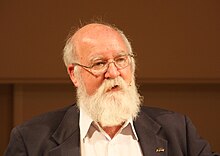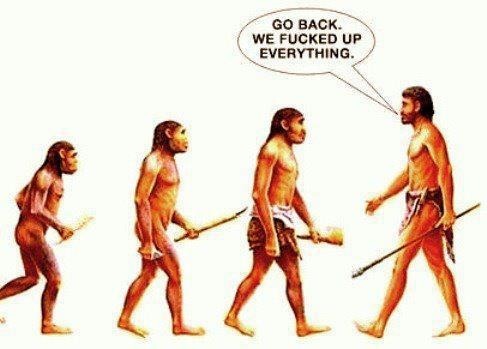For most modern, civilized people time is linear. We feel that it moves from a beginning through a middle to an end: from before through during to after. This is particularly true of our life’s journey –
copulation, birth, marriage, copulation, death.
From womb to tomb. From cradle to grave. (And from left to right – or is that just a personal quirk?)
For many other people time is cyclical. There is movement but, like the seasons, there is also eternal return. Dust to dust, ashes to ashes.
The yin/yang symbol of Taoism offers an image of intertwined opposites containing each other’s seeds. The scientific concept of biogeochemical cycles mirrors the yin/yang cycle. The mass of atoms on planet earth stays the same but there is ongoing churn as they join together and fall apart.
If we view time as linear then we have the problem of figuring what came before the big bang. A beginningless beginning? Something comes from nothing? Did God come before the big bang? What came before God? What grounds are there for supposing an unmoved mover?
If we view time as cyclical then we can suppose an eternal return. Since the big bang, the universe has been expanding. It may eventually reach its full extent and begin contracting again till it reforms a singularity that gives rise to another big bang. Night follows day follows night. Singularity follows universe follows singularity.
BUT – in what extent of space and time does the singularity operate – how is the universe contained? If you go to the edge of the universe and take a step beyond – where would you be?
“You’ll find plenty question masters
Making quagmires of their brain;
The man said, “There is no answer”
They said “You are insane.” (Clark)
Language is a slippery beast. It is quite new in evolutionary terms. It has been growing and is still expanding. It dictates the patterns and agencies that we invent and label to create our reality. We explain the new and unknown in terms of metaphors, similes and analogies relating to what is already familiar.
Early language would have dealt with the practicalities of work and relationships within and between small groups of hunters and gatherers. There would not have been much call in those days for words dealing with space/time, infinity, eternity and unmoved movers.
So how much progress has there been? Are we now asking the right questions or are we linguistically constrained by language more suited to the days of parochial magic and myth?
This morning I feel inspired to believe that we are arriving at radically new patterns of understanding and vocabulary linked to mindfulness meditation, neuroscience, evolutionary psychology and possibly Big History.
Stepping stones across the quagmire of my brain.
Analogy.
Peaceful smile.
















